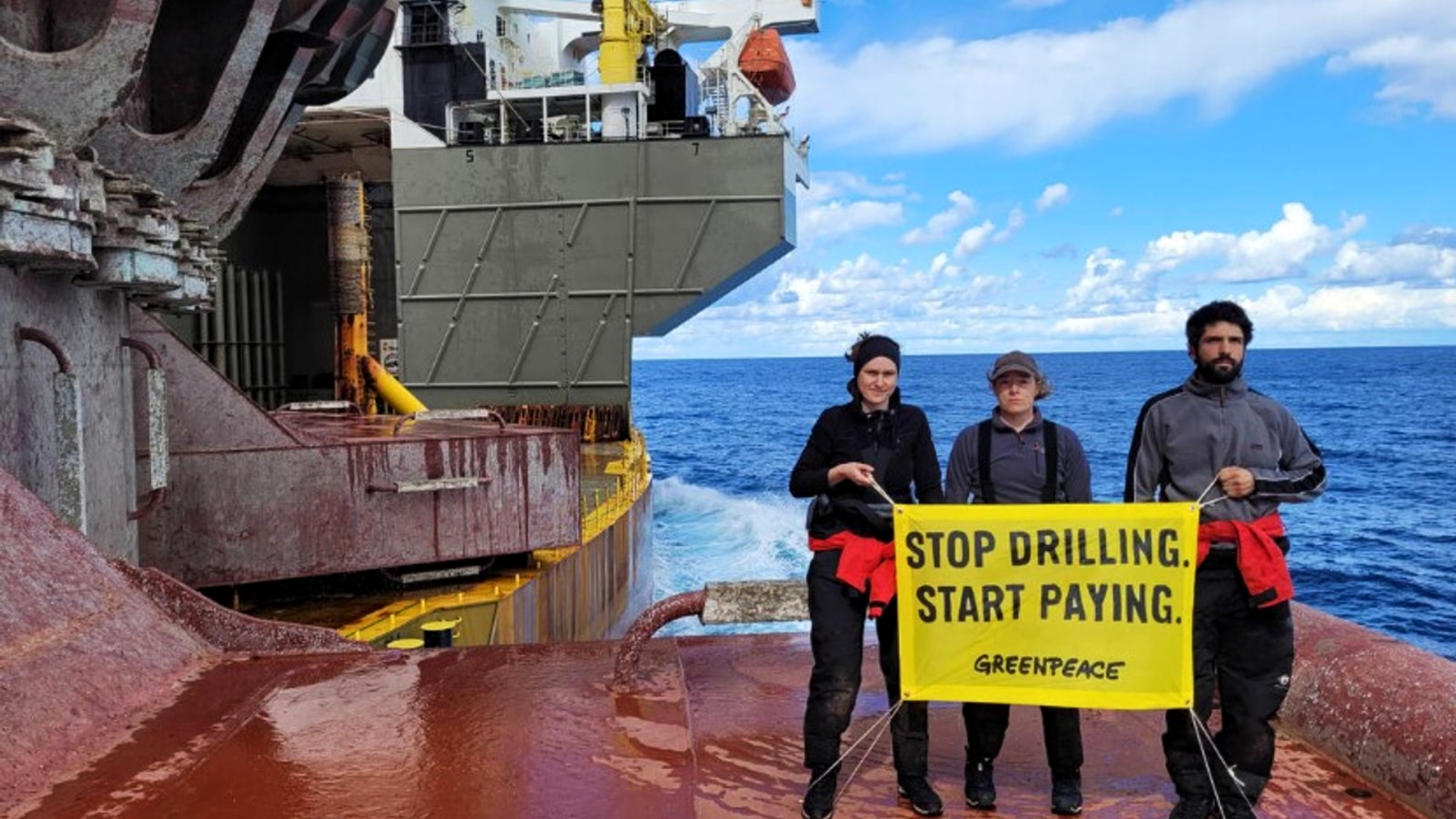Having failed at an anti-democratic power play, Shell is suing Greenpeace for at least $2m following the outfit’s occupation of one of its production storage boats in February.
Shell is attempting ‘to crush Greenpeace’s ability to campaign, and in doing so, seeking to silence legitimate demands for climate justice,’ the environmental group has declared.
In-case you’re unfamiliar, back in February Greenpeace boarded a ship in the Atlantic Ocean transporting a Shell production storage and offloading unit. Four campaigners occupied the barge for 13 days, and the oil giant later filed a case at the High Court in London.
A legal hiatus was put in place on the request of Shell to allow both parties to negotiate out of court. During this period, Greenpeace claims that Shell essentially blackmailed them and used ‘intimidation’ tactics to quell any future disruptions.
It’s alleged that while Shell was originally seeking upwards of $5m in reparations, it had offered to settle at $1.4m provided campaigners agreed not to protest at any of Shell’s oil and gas infrastructure – at sea or in port – ever again. A grubby deal offered by a grubby enterprise.
Unsurprisingly, Greenpeace rejected the notion of turning a blind eye for a lesser punishment, stating that only full compliance with a prior ruling requiring Shell to cut emissions by 45% before 2030 would stop the protests. Shell, meanwhile, is still appealing that case from 2021 in the Netherlands.



















